Michelle Gaudet
Michelle is an Athletic Therapist whose focus is on the clinical aspect of treating injuries. Being an avid sports enthusiast and competitor she has an understanding of how to keep you moving to compete long term.
Working more on the clinical side of her career Michelle works with many every day people. People who want to increase their activity level or simply just be able to get enjoyment out of their lives that they have been limited to fulfilling due to pain. She understands that your injury is more than just the pain you feel; working towards the root cause of the problem to help individuals reach their goals.
Michelle is based out of Competitive Edge Sport Therapy and works with concussion clients on an ongoing basis. We work collaboratively within our team to help individuals recover optimally.
What is a concussion?
A concussion is a brain injury that happens when the brain hits the walls of the skull. You can get a concussion without even hitting your head. There are many symptoms that can occur following a concussion such as headache, pressure in the head, fogginess, sensitivity to light and noise, and dizziness, to name just a few. It is a hard injury for people to understand because we can’t “see” a concussion from the outside.
How do you get a concussion?
There are multiple ways to sustain a concussion. Playing sports and being an athlete is not the only way. Many clients we work with were doing just regular activities or were in a motor vehicle accident when they got a concussion. If you have a history of “concussion” chances are you may be more susceptible to recurring concussions. Previous history of concussion can also extend the recovery rate. Whiplash from a large enough force can result in a concussion.
How can an Athletic Therapist help?
As Athletic Therapists, our education has a large focus on concussions. We help athletes and teams in the prevention of concussion during sport and also help athletes and individuals in their recovery from a concussion once it has already occurred. However, we work with people of all walks of life. If you are struggling with living out your day-to-day work life or even home life because of your concussion symptoms, an Athletic Therapist can help!
A concussion can be a debilitating injury that could prevent you from spending time with your kids and family. By having a hands on approach and someone to vouch for your best interests and goals, we can help change that. After all, rest and a dark room will only get you so far. This is adequate for when the injury immediately happens but, what about when the symptoms of a concussion lasts for more than a couple of weeks? Concussion research has come a long way in the last few years and taking an active approach to recovery has shown to be more beneficial (Schneider, K., et al. 2017).
Concussion Recovery: What to Expect
Recovery from a concussion may look different depending on the nature of the injury, severity, contributing factors, and previous history of concussion. Some people recover faster than others based on these factors. See below for common treatment modalities.
Soft tissue and joint mobilization
When you sustain a concussion it’s often associated with a lot of neck stiffness and tightness. Soft tissue and joint mobilizations help ease tension in this area, and improve your neck range of motion to help make it easier to move your head and neck with minimal discomfort
Visual and vestibular retraining
The vestibular system contributes to balance, coordination and spatial awareness. A concussion can disrupt this system causing symptoms like dizziness and vertigo. Vestibular training/rehabilitation uses maneuvers that hold the head and body in different positions to help relieve and eliminate these symptoms.
Reaction time retraining
Measuring and improving reaction time is important for both concussion prevention and recovery. The faster your reaction time the more likely you are able to protect your head from severe impacts during an incident. Athletic Therapists will use both mental and agility exercises to help people recovering from a concussion improve their reaction time.
It is important to note each Athletic Therapist treats patients a little different so you may experience the expertise of multiple therapists to help you obtain optimal results! Each concussion is unique and an Athletic Therapist can help design a recovery plan based on YOUR needs.
A concussion can be a complicated injury as the process may have some ups and downs. It is important to consult with a professional to help you navigate your recovery so that you can have as many good days in your recovery as possible.


1 thought on “I have a concussion, now what?”
Amazing Michelle, good for you!
Judy